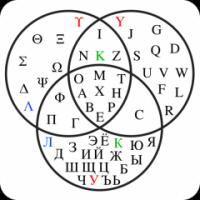訊息: 43
語言: English
Breto (顯示個人資料) 2013年1月27日下午2:19:06
That emphasis thing is something I'd been wondering about myself. In English, "What did you bring?" and "You brought what?" have rather different implications, though the only real difference in form is word order. Even if Esperanto allows for questions that do not begin with question words, though, I do not know if these can be assumed to shift the meaning in the same way.
Do other languages function similarly, or is this pair of constructions unique to English?
Do other languages function similarly, or is this pair of constructions unique to English?
erinja (顯示個人資料) 2013年1月27日下午4:58:58
Esperanto word order can be used to express surprise, but it can also be used simply to make a sentence's meaning clearer, or to add a little emphasis to something. Tone of voice matters too, of course, or in writing, you could use your punctuation instead of tone.
If I wanted to say "What did you bring?", it's true that "Kion vi portis?" would be totally neutral, "Vi portis kion?" could be taken as an expression of surprise.
But if i wanted to mix it up a little but still make it sound casual, I might say something like "Kaj vi, kion portis?" (obviously that's just a re-wording of "Kaj kion vi portis?")
It sounds a bit informal and casual but it's still totally grammatical. Emphasis in this case would be on "vi". (other people brought things, and what did *you* bring?). "Vi portis kion?" would have the emphasis on "kion", since that's the element out of its 'normal' place.
"Kion portis vi?" might add a bit of emphasis to "portis".
If I wanted to say "What did you bring?", it's true that "Kion vi portis?" would be totally neutral, "Vi portis kion?" could be taken as an expression of surprise.
But if i wanted to mix it up a little but still make it sound casual, I might say something like "Kaj vi, kion portis?" (obviously that's just a re-wording of "Kaj kion vi portis?")
It sounds a bit informal and casual but it's still totally grammatical. Emphasis in this case would be on "vi". (other people brought things, and what did *you* bring?). "Vi portis kion?" would have the emphasis on "kion", since that's the element out of its 'normal' place.
"Kion portis vi?" might add a bit of emphasis to "portis".
matrix (顯示個人資料) 2013年1月28日上午12:47:15
sudanglo:An issue that has not yet been fully discussed is the problem of the emphasis shift when one puts 'kiu' in an unusual position for a question.In Esperanto sentences, the subject–verb–object (SVO) order is often the most frequent.
So, putting the object first may be a way to emphasize the latter.
Let’s take a dialogue example:
— Ĉu vi manĝas pomon? [Are you eating an apple?]
— Bananon mi manĝas, ne pomon! [I’m eating a banana, not an apple!]
In this case, the OSV sentence order marks some exclamation.
Generally in Esperanto, when the usual place of a word is changed, it makes a stylistic effect (effet de style): It adds something to the basic meaning.
As for the interrogative sentence “Kiun li diris, kiu venas?”, the head position of kiu·n may indeed mark a surprise or any kind of emphasis on the latter.
erinja:Esperanto word order can be used to express surprise, but it can also be used simply to make a sentence's meaning clearer, or to add a little emphasis to something. Tone of voice matters too, of course, or in writing, you could use your punctuation instead of tone.I agree with that.


